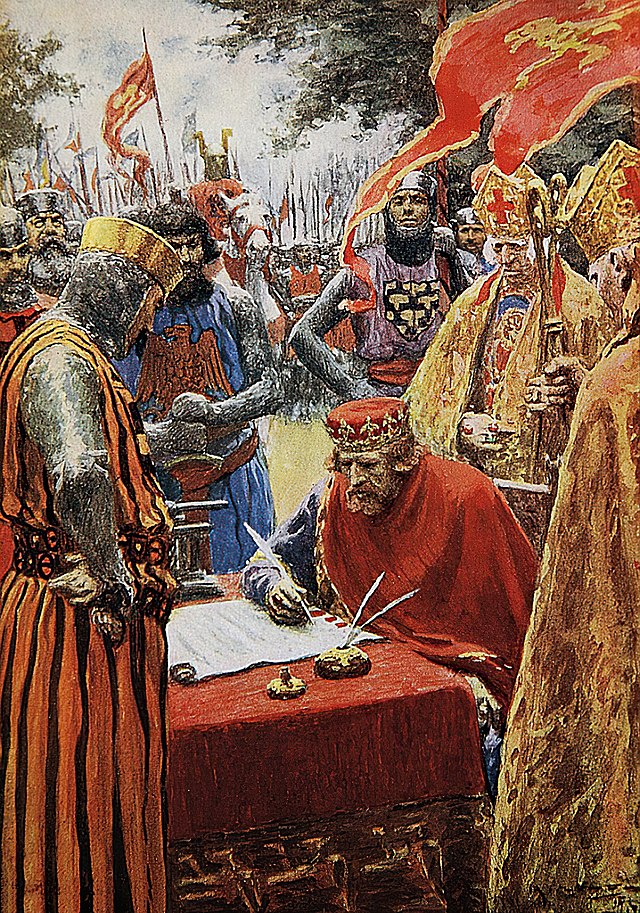Liberty Matters
Duplicate of Justin Champion, “Magna Carta after 800 Years: From liber homo to modern freedom.” (May 2015)

As our conversation has developed, we have been fascinated by the ironies, discontinuities, and even at moments the absurdities, of the reception and re-application of Magna Carta. To put it aphoristically: we academics live in a world shaped by Coke, but our minds are in thrall to Brady. All the participants in this online conversation are agreed on the deep, and deceptively narrow, gulf separating 2015 from 1215. I want in this post to change slightly the angle of vision, and (picking up Justin's sharp formulation of our current discontents as involving a conflict between civil liberties and national security) to reflect on the prospects for Magna Carta. Will it continue to be invoked as a talisman of freedom? Or are the current threats to liberty such that the applicability of Magna Carta will be reduced?
A bet against Magna Carta would of course be wildly against the form-book, since it has shown such an extraordinary potency for re-deployment against targets utterly foreign to its moment of composition. Strict applicability, at least as understood by the academic mind, has in the past proved no obstacle to repeated invocation.
And yet: is it not true that Magna Carta envisages the threat to liberty arising from the excesses of an exorbitant autocracy - in other words, arising out of government which has become autotelic and oblivious of the genuinely public ends (provision of justice, security of property, security of the realm) which alone supply its raison d'être?
However, today in western democracies the threat to individual liberty does not arise from this direction. Today our liberties are threatened most grievously by the demands of security. Our current dilemma is that one legitimate end of government (the security of the realm and of its subjects) is steadily being elevated over another (the liberty of the subject).
In The State[66] Tony de Jasay set out an independent-minded argument contending that the state's avowals of pursuing ends beyond or outside its own self-aggrandisement are illusions (in which the state's own functionaries may of course themselves be trapped - his argument does not depend on proving bad faith on their part). The state has always been, and will always be, autotelic.
If de Jasay is right, then the prospects for Magna Carta look bright: the modern, Lockean state is really just the old state in a posture of (deceptive) concern, and the provisions of the charter can, with no unprecedented degree of stretching, be applied in the future with the same degree of pertinence which obtained in the past.
The problem is that de Jasay's argument is not so much evidence-based as temperamental. If you tend to see things his way, you'll be convinced by what he says; but if not, then not. It also looks rather like an a-historical shortcut: though our problems may feel new, in fact they are just the perennial problems of exorbitant autocracy in new clothes. It would, in a sense, be too conveniently easy (though also very depressing) were de Jasay right.
But if he is wrong, then Magna Carta will become a map so very wildly removed from our current political terrain that the wishes of academic historians may soon come true. Magna Carta will dwindle into the late feudal document they have always insisted it really was - and they alone will read it.
Endnotes
[66.] Anthony de Jasay, The State (Indianapolis: Liberty Fund, 1998). </titles/319>.
Copyright and Fair Use Statement
“Liberty Matters” is the copyright of Liberty Fund, Inc. This material is put on line to further the educational goals of Liberty Fund, Inc. These essays and responses may be quoted and otherwise used under “fair use” provisions for educational and academic purposes. To reprint these essays in course booklets requires the prior permission of Liberty Fund, Inc. Please contact oll@libertyfund.org if you have any questions.